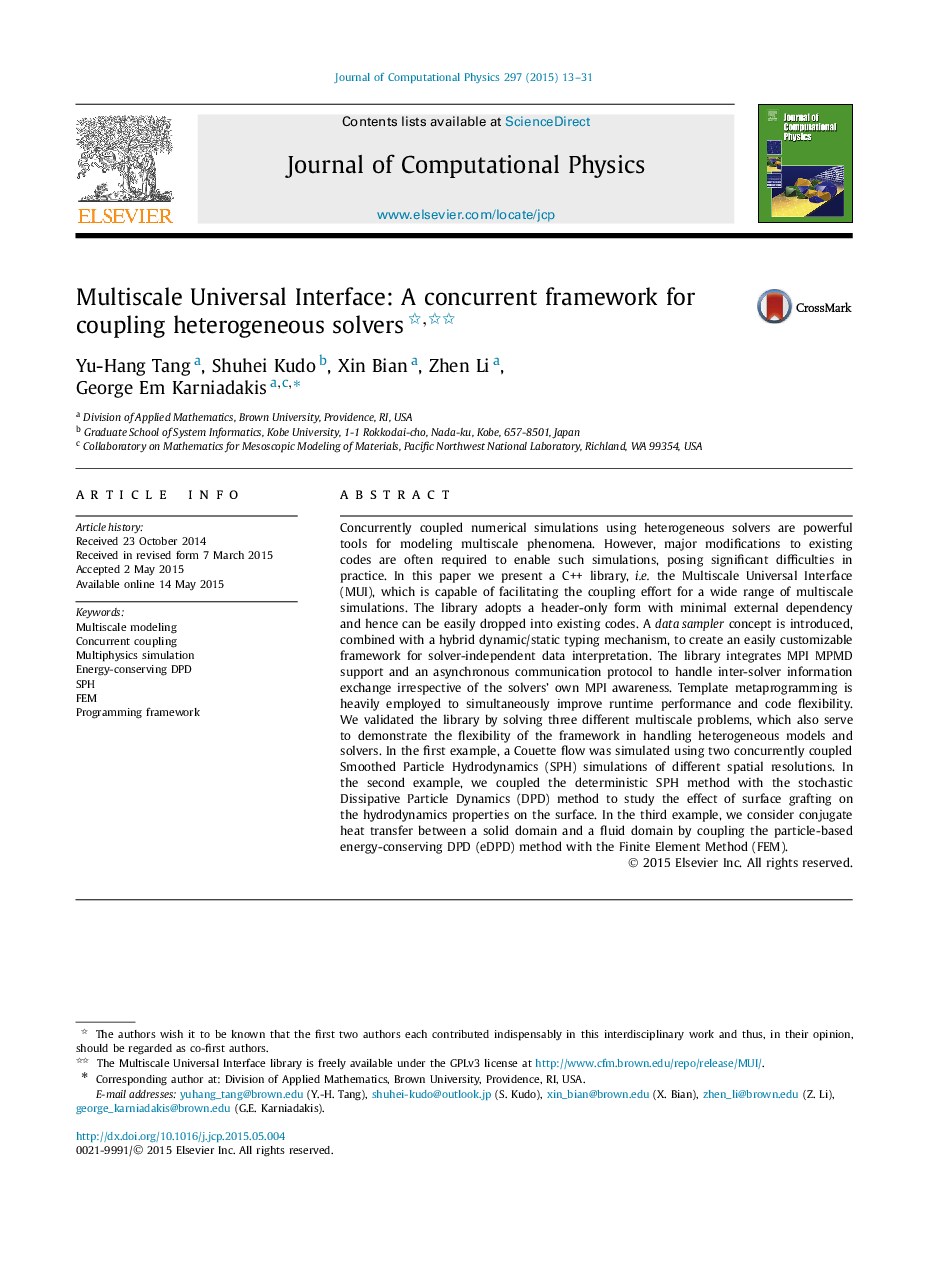| کد مقاله | کد نشریه | سال انتشار | مقاله انگلیسی | نسخه تمام متن |
|---|---|---|---|---|
| 6931239 | 867668 | 2015 | 19 صفحه PDF | دانلود رایگان |
عنوان انگلیسی مقاله ISI
Multiscale Universal Interface: A concurrent framework for coupling heterogeneous solvers
دانلود مقاله + سفارش ترجمه
دانلود مقاله ISI انگلیسی
رایگان برای ایرانیان
کلمات کلیدی
موضوعات مرتبط
مهندسی و علوم پایه
مهندسی کامپیوتر
نرم افزارهای علوم کامپیوتر
پیش نمایش صفحه اول مقاله

چکیده انگلیسی
Concurrently coupled numerical simulations using heterogeneous solvers are powerful tools for modeling multiscale phenomena. However, major modifications to existing codes are often required to enable such simulations, posing significant difficulties in practice. In this paper we present a C++ library, i.e. the Multiscale Universal Interface (MUI), which is capable of facilitating the coupling effort for a wide range of multiscale simulations. The library adopts a header-only form with minimal external dependency and hence can be easily dropped into existing codes. A data sampler concept is introduced, combined with a hybrid dynamic/static typing mechanism, to create an easily customizable framework for solver-independent data interpretation. The library integrates MPI MPMD support and an asynchronous communication protocol to handle inter-solver information exchange irrespective of the solvers' own MPI awareness. Template metaprogramming is heavily employed to simultaneously improve runtime performance and code flexibility. We validated the library by solving three different multiscale problems, which also serve to demonstrate the flexibility of the framework in handling heterogeneous models and solvers. In the first example, a Couette flow was simulated using two concurrently coupled Smoothed Particle Hydrodynamics (SPH) simulations of different spatial resolutions. In the second example, we coupled the deterministic SPH method with the stochastic Dissipative Particle Dynamics (DPD) method to study the effect of surface grafting on the hydrodynamics properties on the surface. In the third example, we consider conjugate heat transfer between a solid domain and a fluid domain by coupling the particle-based energy-conserving DPD (eDPD) method with the Finite Element Method (FEM).
ناشر
Database: Elsevier - ScienceDirect (ساینس دایرکت)
Journal: Journal of Computational Physics - Volume 297, 15 September 2015, Pages 13-31
Journal: Journal of Computational Physics - Volume 297, 15 September 2015, Pages 13-31
نویسندگان
Yu-Hang Tang, Shuhei Kudo, Xin Bian, Zhen Li, George Em Karniadakis,